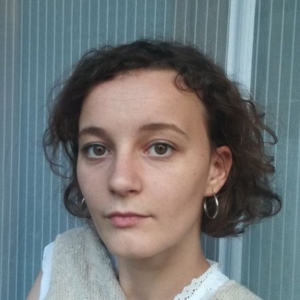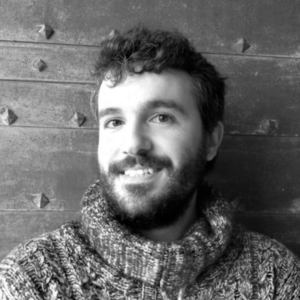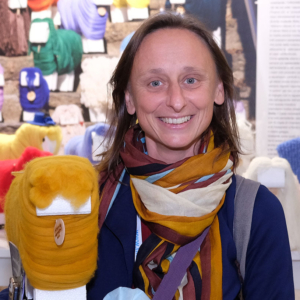DePOT is pleased to welcome five new affiliates this month. You can read their biographies below, and navigate to their profiles to learn more about their projects.
I hold a BA degree in International Relations and a double master’s degree in comparative analysis of Mediterranean societies and international studies obtained at the Mohammed VI Polytechnic University in Morocco and the University of Turin. I earned my master’s with a research thesis on memory politics in post-war Bosnia and Herzegovina, with a focus on the Srebrenica genocide as “difficult heritage”. Driven by my desire to investigate the complexity of European histories and cultures, after my MA I worked as an intern at the Memory Studies Association (MSA) and as a research fellow at the contemporary art foundation Sandretto Re Rebaudengo, where I dealt with cultural and artistic approaches to memorialization. My broad research interests lie in memory studies, heritage studies, oral history and socio-technical transitions. My doctoral research will investigate the history of Italian nuclear de-industrialization from a global and comparative perspective, drawing from science and technology studies to address the interrelationship between the nuclear sector and the historically evolving social world and from deindustrialization studies to address heritage-making issues in the nuclear industry and local communities.
Chad Montrie is a professor in the History Department at the University of Massachusetts Lowell. He is the author of five books, including The Myth of Silent Spring: Rethinking the Origins of American Environmentalism (2018).
He is the Fulbright Canada Research Chair for 2022-2023 at the University of Calgary, investigating the role Canadian workers played in making an environmental movement and participating in the Energy in Society group at the Calgary Institute for the Humanities.
Jorge Magaz-Molina is a PhD student in the Department of Architecture at the University of Alcalá (Spain). He holds a Master’s degree in Architecture from the same university, and during his training, he carried out stays at the IUAV (Italy) and the State Linguistic University of Irkusk (Russia). He has a background in LGBT policy and is trained in gender studies.
Jorge is completing his PhD thesis on cultural landscape policies related to the industrial energy legacy in the context of the current processes of reconversion derived from climate change, under the supervision of Dr. Layuno Rosas. He has participated in the research project “The image of the National Institute of Industry in Spain: Cartography and Industry Landscape of Francoism” funded by the Spanish Ministry of Science, carried out stays in Italy and Malta, and presented his research in more than a dozen conferences across Spain, Portugal, Italy, and Canada. He teaches History of Contemporary Architecture and Industrial Heritage Enhancement at the University of Alcalá and has also coordinated several seminars at the National University of Distance Education (UNED).
Manuela Vinai is an anthropologist, PhD student at the University of Turin (Italy) in cotutorship with the University of Aix-Marseille (France). After her first degree in sociology (2001) she has been working as an independent social researcher for about fifteen years (2003-2019). During these years she has had the opportunity to experience the change of the Biella territory, particularly the process of impoverishment, through the “Osservabiella project.” Having moved to Turin in 2016, the need to better understand the social change faced during those years led her to enroll in the master’s degree in Changement politique, pouvoir, productions culturelles at the University of Nice and to graduate in Ethnology (2019). She then enrolled in the PhD in Anthropology at the University of Turin, which she is currently attending. Her intention is to deepen, through an ethnographic approach, the understanding of the social context of this Italian textile district and its challenge of coping with the deindustrialization process.
Dr Yvonne McFadden is Co-Director and Research Associate at the Scottish Oral History Centre, Univeristy of Strathclyde. Her main interests are in oral histories of home, family, gender and work. Her current research focuses on the impact of deindustrialisation on communities, especially women and children. Since completely her thesis at the University of Glasgow in 2016, Dr McFadden has worked at the University of Glasgow, Glasgow Caledonian University and is now currrently at the Univesity of Strathclyde. Her recent project, with Prof Arthur McIvor, is collecting stories from mining communities in East Ayrshire, Scotland. This project focuses on the gendered experiences of home and community as throughout the process of deindustrialisation.









